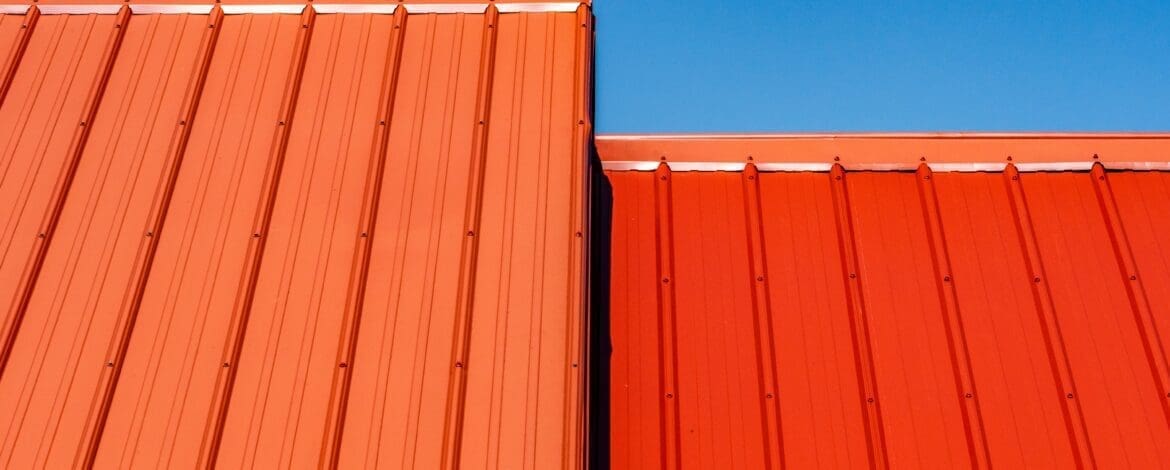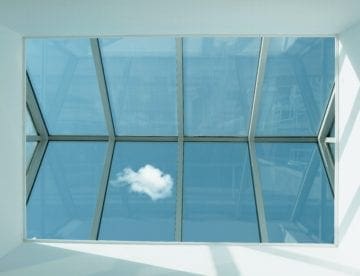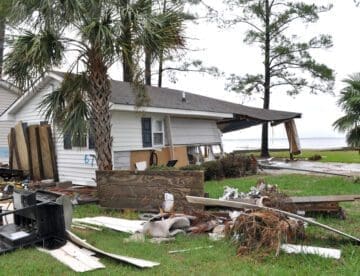A metal roof leaking can cause significant damage to your building. The cause of leaky metal roofs is typically to do with the installation or subsequent repairs. Regardless of why the metal roof leaks, fixing it must be your top priority. Unfortunately, by the time you notice the leak, extensive damage could already have occurred.
A metal roof should last between 40 and 70 years. However, the challenging climate of Florida means that metal roofs must deal with intense sunshine, hurricanes, high humidity, and heavy rainfall. These climatic conditions can test the integrity of metal roofs in Florida. Therefore, it’s always crucial to use a trusted roofing contractor to install and repair a metal roof.
But suppose you have noticed that your metal roof is leaking. In that case, it’s vital to investigate the cause of the leak to fix it properly.
Seven Causes For a Metal Roof Leaking
The main reason for a metal roof leaking is the original installation, not the type of metal roofing material used. And the most common reasons for leaks on metal roofs include incorrectly installed screws, missing sealants, slack flashings, rust, or damaged metal roof panels.
Metal roofing in Florida is one of the most durable types available. Many property owners choose to install a metal roof because it’s easy to maintain, lasts for decades, and is highly durable. Unfortunately, issues can occur with metal roofs, causing them to leak.
Let’s look in detail at why a metal roof can start to leak and what you can do to fix it.
1. Metal roof leaking due to improperly driven roofing screws
The most common reason for a metal roof leaking is the installation screws. Metal roofing screws are fasteners with rubber washers. They have a small rubber gasket forming a watertight seal between the metal roofing panel and the screw. Water would leak through the holes if the screws were improperly driven.
Here are three typical reasons why roofing screws could cause the leakage.
Overdriven roofing screws — Driving screws too tight when installing a metal roof splits the rubber washer, causing water to seep through the crack.
Underdriven roofing screws — Failing to provide enough torque and not driving the screws tight against the roofing panel means there is no seal to prevent water from getting into the roof.
Misaligned roofing screws — Screws installed at the wrong angle will leave a gaping hole in the roof, and water will pour in when it rains.
Apart from installation issues, there are other reasons why screws can cause metal roof leaks. For example, hot summers and cooler winters in north Florida can degrade the seals. Also, the hot, humid conditions in Florida can affect the integrity of rubber seals.
How to fix the leaking roof: Check which screws are not installed correctly and replace them using the correct torque to fix them.
2. Missing sealants result in metal roof leaks
Sealants degrade over time, and they can let water in if they are not replaced. In addition, waterproof sealants don’t last as long as the metal roof. Therefore, regular metal roof maintenance should be done to check and replace sealants. The typical culprits are around roof transitions and under trims.
The reason sealants require replacing is because metal roofs expand and contract daily in heat. Also, hurricanes and strong winds can create cracks in sealants, resulting in a metal roof leaking.
How to fix the leaking roof: Carry out yearly maintenance to ensure all sealants are intact.
3. Stack flashings
Stack flashings are another common reason for a metal roof leaking in Florida. Flashings around chimneys, air vents, HAVC vents, and pipes that come out the roof prevent water from getting through cracks. Like sealants, heat, intense sunshine, humidity, and hurricane winds can damage these waterproof sealants.
How to fix the leaking roof: Check stack flashing seals during the regular roof inspection and replace them as necessary.
4. Curb flashings
Damaged flashings around HVAC units installed on metal roofs are also a reason for a metal roof leaking. The roof curb is a structure to support the HVAC units. Because they are notoriously tricky to install, it’s a common source of roof leaks. Also, water can pool behind the unit, which will erode the sealant sooner or later.
5. Open seam laps
Metal roofs consist of several metal panels that are joined together. Therefore, it’s vitally important the joints are adequately sealed during installation. The metal roof leak happens because capillary action can cause water between the gaps to travel uphill. Therefore, sealing the metal seam laps with butyl tape or sealant is the best solution to fix the leaky roof.
This is a compelling reason always to entrust replacing a metal roof to local professional roofing contractors.
6. Missing or damaged metal roof panels
Despite arranging for the best roofing contractor in Florida to install your metal roof, hurricanes, intense sunshine, and high humidity can cause extensive damage. For example, strong winds cause movement in metal roofs. In time, this could work screws loose, erode sealants, or damage roofing panels.
7. Rust and corrosion
Rust can eventually cause a metal roof to leak if don’t fix the corrosion. Patches of rust can appear when the roof coating gets damaged or is old. The coating can peel, and the metal will start to scale. Eventually, holes will appear in the metal roof.
How to fix the leaking roof: As soon as you notice rust patches on the metal roof, apply a rust inhibitor. Then, you should contact a local roofing contractor to do professional repairs.
Call Us Today
Fixing a leaking metal roof is crucial to prevent considerable structural damage to your property. Quality metal roof repairs will ensure that issues with a metal roof will not return. Also, regular roof inspections will catch any problems with sealants and flashings before they start leaking.
If you are worried about a metal roof leaking, contact your local roofing contractor today for a free estimate. At Code Engineered Systems, our team has many years of experience fixing and installing metal roofs in the Sunshine State.




